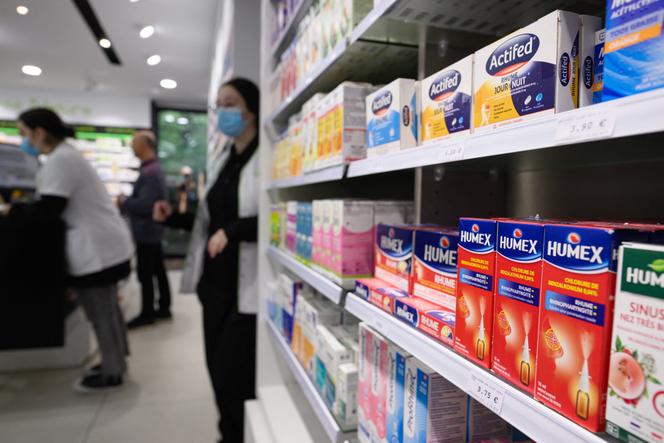


At the age of 69, Hélène Roy will soon be putting away her white lab coat to enjoy a well-deserved retirement. But before she finally leaves the counter of her "modest" pharmacy in Dijon, the pharmacist intends to wage one last battle alongside her colleagues, to defend a profession "at the service of patients" which she cherishes and believes to be under threat today.
"We have an image of [being] rich people. The reality is much more mixed. Yes, there are pharmacists who earn a very good living, but they're not as numerous as we imagine," she lamented. She cited the many messages she received from "struggling" colleagues after she published an op-ed in Le Monde (in French) on April 15, in which she expressed alarm at the growing economic difficulties of France's pharmacies. This Thursday, she will close up shop for the day to march with her staff through the streets of Dijon – nearly 40 processions, including one in Paris, are planned across France – to draw the attention of public authorities to the malaise of the pharmacy sector.
Three hundred kilometers away, Michaël Cohen, 32, will also be lowering the shutters on his Paris pharmacy. The young owner did not hesitate to respond to the call to strike issued by the profession's unions. He posted a video on TikTok detailing the reasons for this nationwide mobilization and it was met with great response, nearly 2,000 reactions in just a few hours. "More and more pharmacies are in difficulty. Pharmacists have loans on their backs, rents to pay, staff to pay. But margins and cash flow are dwindling, and inflation is weighing on our costs," he said.
The protest promises to be significant. According to estimates by the French Federation of Pharmaceutical Unions (FSPF) and the Union of Pharmacists Associations (USPO), the two main unions representing the industry, almost 90% of the 20,000 pharmacies in France will close their doors on Thursday. In some towns, such as Nice and Avignon, all pharmacies are planning to go on strike. The profession is not accustomed to such protests. "The last demonstration on this scale dates back to 2014. It's a good indication of the level of anger and anguish among pharmacists," said Hervé Jouves, head of Hygie31, which brings together 1,200 pharmacies in France under its banner, and also vice president of Federgy, the main union of pharmacy groups and chains.
At the heart of the dispute are negotiations with the Assurance-Maladie, France's nationwide public health insurance. Launched in December, these negotiations are intended to establish the conditions under which the pharmacies will operate and be remunerated over the coming years. Pharmacists are aiming to increase the budget allocated to their businesses to €7.8 billion by 2025 by raising their fees. That would be €1 billion more than in 2019.
You have 42.16% of this article left to read. The rest is for subscribers only.
